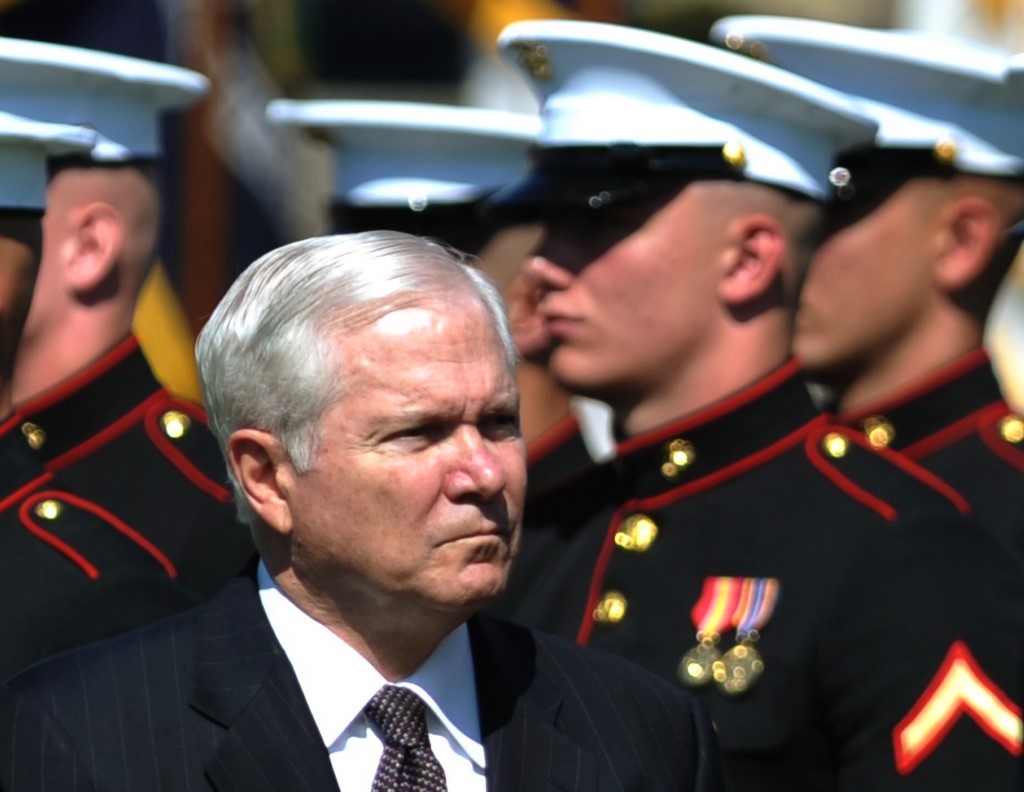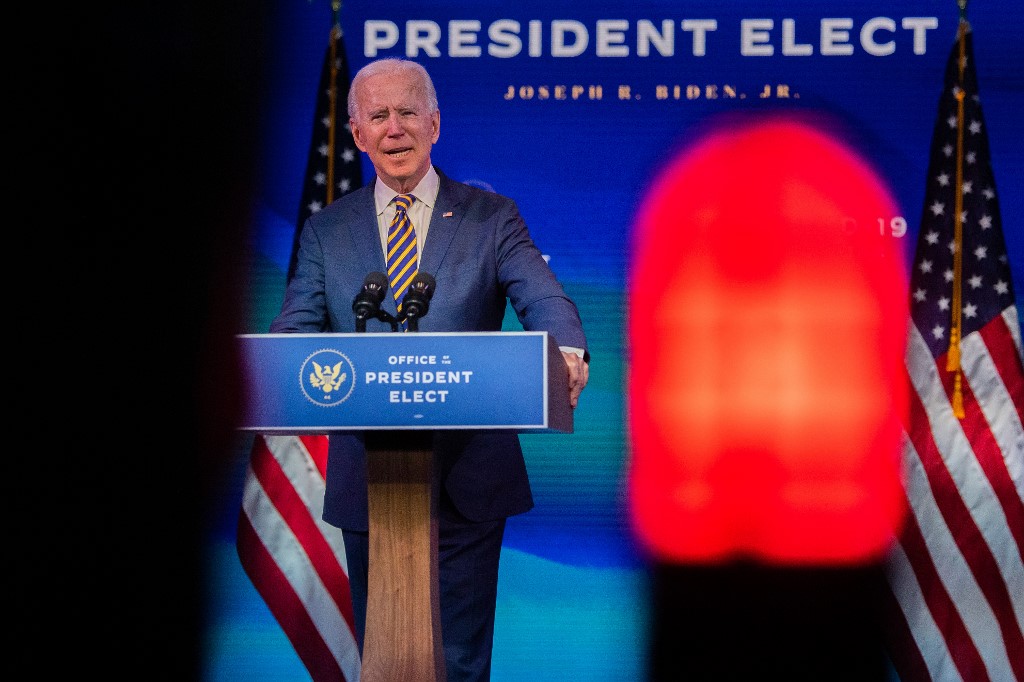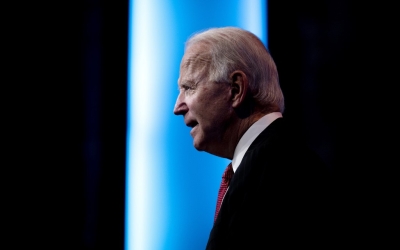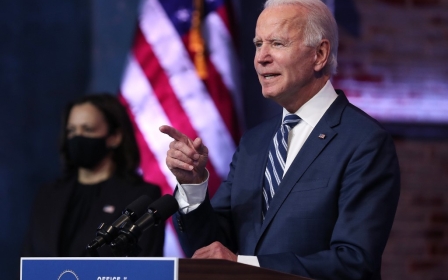Has the US developed an immunity to critical thinking?

On 18 December, Robert Gates, the former US defence secretary, published an op-ed in the New York Times to offer advice on how President-elect Joe Biden should deal with the challenges the country is facing.
Gates belongs to an endangered American political species: he is a moderate Republican, but also a typical representative of the US foreign policy and security establishment, dubbed the Blob, to which the Biden administration wishes to return after President Donald Trump's interlude. Yet, his excellent credentials notwithstanding, Gates' article is a disheartening read.
Irrespective of how many good intentions and sound policies the US may advocate, an imperial and hegemonic attitude still permeates its approach to the world
Gates details some agreeable priorities that should be pursued after 20 January: "re-engaging with America's friends and allies, renewing our participation in international organizations and relying more heavily on nonmilitary instruments of power".
The main problem with his, and the Blob's, foreign policy thinking is not their stated goals, but the worrisome thinking that precedes their formulation, often producing highly undesired results. This includes the ease with which the US tends to use force to solve problems. Gates offers no exception, when in his op-ed - primarily aimed at setting guidelines to re-establish US credibility - he cannot resist emphasising that "unparalleled military power must remain the backdrop for America's relations with the world".
This sort of clarification is not trivial. It shows that irrespective of how many good intentions and sound policies the US may advocate, an imperial and hegemonic attitude (defined as "leadership") still permeates its approach to the world.
New MEE newsletter: Jerusalem Dispatch
Sign up to get the latest insights and analysis on Israel-Palestine, alongside Turkey Unpacked and other MEE newsletters
Gates' invocation of "unparalleled military power," which does not match his professed ambition to rely "more heavily on nonmilitary instruments of power," implies that only the US must lead the world, period. It suggests that US views may be imposed coercively. It is astonishing that after having squandered the political capital from its brilliant Cold War victory on endless wars and arrogant, unilateralist behaviour, the US may still persist in pursuing such a mistaken, provocative and self-harming approach.
Dangerous thinking
While Biden has formulated his international vision and explained why the US should lead again in elegant and heartening prose, such dangerous thinking will likely continue to characterise - and harm - US policy.
During the last 12 months, the Covid-19 pandemic has broadened our awareness of the concept of herd immunity. So far, however, the only apparent application of this concept is unrelated to the pandemic; rather, it concerns the thinking of the US foreign policy and security establishment. The Blob appears to have a sort of herd immunity to critical thinking and reviewed policy options.
In his op-ed, Gates advocates the renewal of US participation in international organisations, a welcome perspective. But he also fuels the impression that multilateralism is fine, provided that it follows US politics and priorities. He describes international organisations as "effective conduits for American influence around the world". Their primary role is not to promote universal values and sustainable development for all nations, but to advance "American interests around the world and the well-being of our own citizens".
Such a reductionist view of international organisations is the result of one of the Blob's more rooted beliefs: What is good for the US is good for the rest of the world. If such axioms may have been true in the past, there are serious doubts that they remain true today.
Gates seems committed to another of the Blob's favourite hobbies: searching the world for monsters to destroy. He points to the threat from China and Russia and advocates continued pressure on European allies to increase their defence spending.
Authoritarian partners
Gates reiterates the usual notion that sees the US taking the lead in Nato, an "alliance of democracies," in order "to devise consequences for member states" such as Turkey, Hungary and Poland that have embraced or moved towards authoritarianism. This is the same Poland whose interests, Gates says, should be taken into account by Germany as far as the Nord Stream 2 pipeline is concerned. Of course, he does not utter a word on other authoritarian partners of the US around the world.
Germany is not spared imperial and contemptuous tones, as in Gates' warning over Nord Stream 2. This leaves the impression that a major European country should not be entitled to sovereignty in selecting its energy suppliers and the means of delivery. This sounds odd, considering that at the height of the Cold War, the Soviet Union was one of Europe's major energy suppliers.
It should come as no surprise, then, if Eurasian competitors of the US - mainly Russia, China and Iran - maintain a cautious scepticism towards the new US administration, especially if its views coincide with those of Gates. Even European allies of the US nurture some concerns over what is to come, especially on trade disputes and big tech.
Washington's Blob is still struggling to reconcile an evolving international landscape, where new important actors, such as China, are emerging; old ones, such as Russia, are reclaiming their spheres of influence; and regional ones, such as Iran, are not giving in to US pressure. They are all rejecting the renewed US global unilateral "leadership" that Biden seems to be advocating again.
Moreover, Beijing and Moscow are increasingly coordinating politically, economically and militarily. The sooner the Biden administration and the Blob adjust - humbly and wisely- to this new reality, the better for everybody - including American citizens.
The views expressed in this article belong to the author and do not necessarily reflect the editorial policy of Middle East Eye.
Middle East Eye delivers independent and unrivalled coverage and analysis of the Middle East, North Africa and beyond. To learn more about republishing this content and the associated fees, please fill out this form. More about MEE can be found here.







